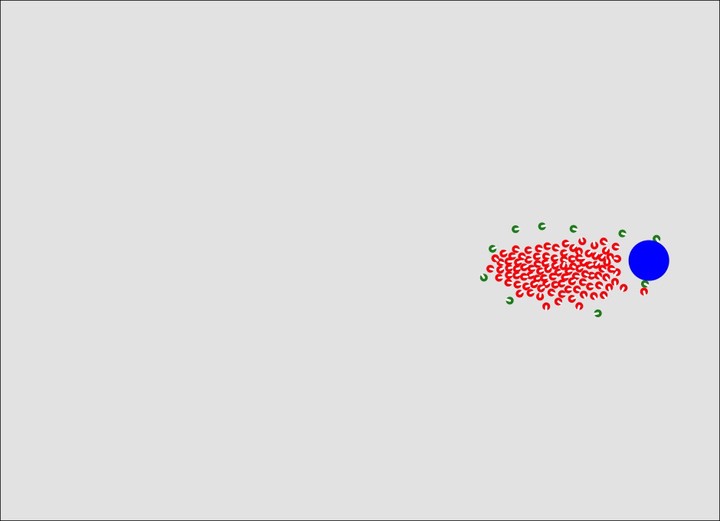Shepherding with Robots That Do Not Compute
 shepherding
shepherding
Abstract
We examine the problem solving capabilities of swarms of computation- and memory-free agents. Each agent has a single line-of-sight sensor providing two bits of information. The agent maps this information directly onto constant motor commands. In previous work, we showed that such simplistic agents can solve tasks requiring them to organize spatially (multi-robot aggregation and circle formation) and manipulate passive objects (clustering). In the present work, we address the shepherding problem, where the computation- and memory-free agents—the shepherds—are tasked to gather and move a group of dynamic agents—the sheep—towards a pre-defined goal. The shepherds and sheep are modelled as e-puck robots using computer simulations. Our findings show that the shepherding problem does not fundamentally require arithmetic computation or memory to be solved. The obtained controller solution is robust with respect to sensory noise, and copes well with changes in the number of sheep.